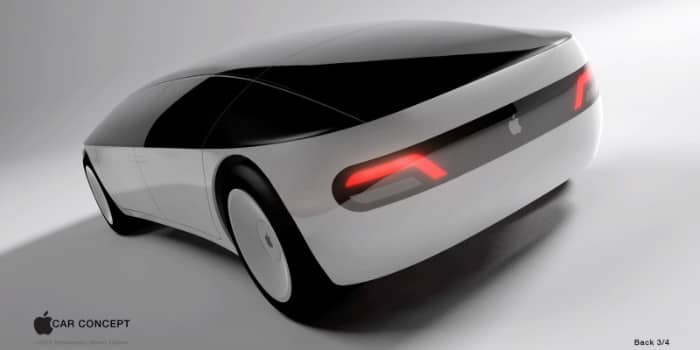Apple first made a move into automative technology when it introduced CarPlay in 2014, enabling a limited number of iOS apps to run on the colour displays that were becoming an increasingly common part of car infotainment systems. Once again, Apple wasn’t the first company to bring touchscreens and graphical interfaces to cars, but they found a new and, most would agree, better way to do this.
Not content with just being an accessory maker, Apple launched an internal project, called Project Titan. By 2018, there were about 5000 people at Apple working on creating a driverless car. Rumours of the so-called Apple Car have persisted for several years with some analysts suggesting Apple would be releasing a car at some point in the middle of this decade. But the quest for a fully autonomous vehicle has eluded the automotive industry – Tesla has tried and suffered some embarrassing backtracks while established car makers have settled on adding features that assist drivers to be safer rather that taking full control.
The harsh reality is that the technology needed to make a fully autonomous vehicle is quite there yet. Just as drivers have situational awareness as they drive – we see and hear things, take subtle cues from other drivers such as where they are looking – the ability for technology to do the same and process it into a quick decision is still limited. That’s not to say it won’t happen but a lot of different pieces need to be found to put that puzzle together.
So, when well-regarded pundit Mark Gurman says Apple has recalibrated its ambitions for its car it’s not a surprise. The quest for full autonomy has been set aside with a steering wheel and pedals now part of the design. I suspect that Apple will no doubt try to imbue the Apple Car with its design and production DNA. When the first Apple Watch was released, watch makers commented that the build quality rivalled, and even exceeded, that of watches costing many thousands of dollars rather than the few hundred Apple charged.
Apple’s hardware quality has, for many years, been complemented by its focus on optimising the user experience. This was evident when Apple previewed its future vision for CarPlay where the software extended beyond the infotainment unit and took over the entire dashboard. Again, this isn’t new – BMW has been doing something similar with its latest models.

The question remains – is Apple really going to make a car all on its own? It will be a practical impossibility for Apple to start manufacturing vehicles en masse and hide it from the world. Just as the first iPhone was announced months before its official release, Apple will have to do the same in order to pass regulatory approvals.
My take is that Apple will release an all new version of CarPlay and likely partner with exisiting car makers to take over the dashboard. We’ll see that launch in the next year with widespread adoption to take some time as replacing a dash is not as simple as updating an infotainment head unit.
As for an Apple produced car… I’d be surprised to see one arrive before the end of the decade. One thing we can learn from Tesla is that even with the expertise and experience of making electric vehicles has suffered delays with producing new models. Apple will be starting from scratch and in a global environment where supply chains are far more complex and volatile.
Apple will be in your car well before it makes your car.

Anthony is the founder of Australian Apple News. He is a long-time Apple user and former editor of Australian Macworld. He has contributed to many technology magazines and newspapers as well as appearing regularly on radio and occasionally on TV.

